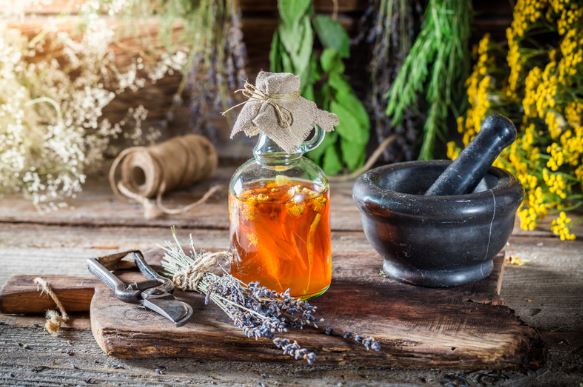5 Essential Oils That Help Improve & Manage Pulmonary Functions
Essential Oils 101
Essential oils are all the rage these days.
You can find them in everything from candles to skincare products.
But did you know that essential oils can also be used to improve your pulmonary function?
In this blog post, we’ll take a look at five of the best essential oils for pulmonary function and how you can use them to improve your breathing.
Let’s Define Pulmonary Function
Click here for Pulmonary Function definition.
1. Peppermint Oil

Peppermint oil is one of the best essential oils for pulmonary function.
It’s refreshing and invigorating, and it can help to open up your airways.
Simply inhale peppermint oil directly from the bottle or add a few drops to a diffuser or humidifier.
You can also rub peppermint oil on your chest or back to help relieve congestion.
2. Eucalyptus Oil

Eucalyptus oil is another excellent choice for improving pulmonary function.
This oil is often used in chest rubs and inhalers because it’s so effective at relieving congestion.
Eucalyptus oil can also help to open up your airways and make breathing easier.
Simply add a few drops of eucalyptus oil to a diffuser or humidifier, or rub it on your chest or back.
You can also add eucalyptus oil to a steamy shower or bath to help clear your sinuses.
3. Lavender Oil

Lavender oil is known for its calming properties.
However, did you know that it can also help with pulmonary function?
This oil is an expectorant, which means it helps to loosen phlegm and make it easier to cough up.
It’s also anti-inflammatory, so it can help reduce swelling in the airways.
To use lavender oil for pulmonary function, simply add a few drops to a diffuser or humidifier, or rub it on your chest or back.
You can also add lavender oil to a steamy shower or bath.
4. Rosemary Oil

Rosemary oil is another good choice for improving pulmonary function.
This oil is an expectorant and mucolytic, which means it helps to break down mucus so that it’s easier to cough up.
Rosemary oil is also anti-inflammatory and antimicrobial, so it can help reduce swelling in the airways and kill any harmful bacteria that may be present.
To use rosemary oil for pulmonary function, simply add a few drops to a diffuser or humidifier, or rub it on your chest or back.
You can also add rosemary oil to a steamy shower or bath.
5. Thyme Oil

Thyme oil is another excellent essential oil for pulmonary function.
Like rosemary oil, thyme oil is an expectorant and mucolytic, which means it helps loosen phlegm and make it easier to cough up.
Thyme oil is also antimicrobial, so it can help kill any harmful bacteria that may be present in the lungs.
To use thyme oil for pulmonary function, simply add a few drops to a diffuser or humidifier, or rub it on your chest or back.
You can also add thyme oil to a steamy shower or bath.
What Does Therapeutic Grade Essential Oil Mean?
Therapeutic grade essential oil is a term used to describe oils that are pure, high quality, and potent.
These oils have been carefully extracted and distilled from plants using specific methods that preserve the essential nutrients and active compounds in the oil.
Unlike many other essential oils on the market today, therapeutic-grade essential oils contain no additives or fillers, making them a great choice for health and wellness.
Some of the best essential oils for therapeutic purposes include lavender, peppermint, frankincense, tea tree oil, and eucalyptus.
If you’re looking to improve your pulmonary function or treat other respiratory conditions, be sure to try some therapeutic-grade essential oils today!
FAQs
How Do I Know If My Oils are Therapeutic Grade?

There is no official certification or regulatory body that oversees the production of essential oils, so it can be difficult to know if your oils are truly therapeutic-grade.
However, there are a few things you can look for when shopping for essential oils that will help ensure their quality and potency.
For starters, check the label to see where and how the essential oils were produced. Ideally, they should be grown and distilled in their country of origin, using organic farming methods.
You should also look for essential oils that are 100% pure and unadulterated, with no fillers or additives of any kind.
Finally, check the oil’s packaging to be sure it is dark glass or steel, which will help keep the essential oils fresh and potent.
If you’re looking for high-quality therapeutic essential oils, start shopping today and look for these key features to ensure you get the best possible product!
Are Essential Oils Safe for Children?

Essential oils can be a great choice for supporting children’s health and well-being.
It’s important, however, to use them safely and wisely.
Talk to your pediatrician to make sure they are appropriate for your child’s age and health condition.
Also, always dilute essential oils with a carrier oil, like coconut or jojoba oil, before applying them to the skin.
It is unsafe to use essential oils internally in children.
Use in a diffuser at a low setting.
This will allow kids to safely experience their aromas.
Essential oils can be a helpful way to improve your child’s health under the right circumstances and with adult supervision.
They can relieve symptoms, support mood and immunity, and even help manage common conditions.
If you’re interested in using natural methods to care for your child, consider adding essential oils to their daily routine!
Is It Safe To Combine Different Essential Oils Together?

There is a lot of debate about the safety of combining essential oils, and there is no definitive answer.
Many experts in the essential oil community believe that these all-natural compounds can have greater therapeutic effects when used together.
However, you should never combine certain essential oils with other essential oils.
Doing so might result in negative interactions and cause undesired effects.
For example, do not combine phototoxic essential oils like lemon, grapefruit, and bergamot with other essential oils like rosemary or eucalyptus.
It is crucial to do your research.
Speak with a trained aromatherapist in order to create blends that are both effective and safe.
It is crucial to research possible risks and speak with a trained essential oil practitioner or aromatherapist before combining any essential oils, to ensure you are making safe and effective blends.
The Bottom Line
If you’re looking for ways to improve your pulmonary function, essential oils are a great place to start.
We’ve looked at five of the best essential oils for pulmonary function:
- Peppermint oil
- Eucalyptus oil
- Lavender oil
- Rosemary oil
- Thyme oil
These essential oils are ideal for respiratory health.
They can be used on their own or in different mixtures.
You can create a blend that works best for you.
Essential oils are beneficial for immunity, respiratory health, and managing chronic illnesses such as asthma or COPD.
Start experimenting with essential oils today and see how they can help support your overall health!
So what are you waiting for?
Start incorporating these oils into your life today and breathe easy!

The post 5 Essential Oils That Help Improve & Manage Pulmonary Functions appeared first on Health & Wellness Solutions For Life.
Originally published at https://www.mrxlsmith.com/5-essential-oils-for-pulmonary-function
Comments
Post a Comment